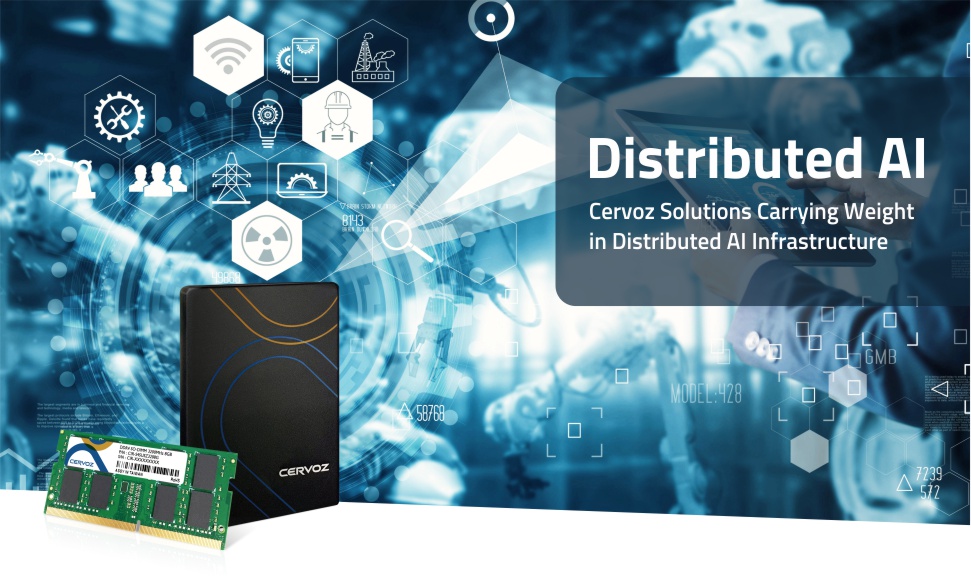- Company
- Press Center
- Distributed AI
NEWS
2022.04.27
Distributed AI
SHARE

Advancements in digitalization have brought us to this era of big data, and rocketed the development in AI (artificial intelligence), ML (machine learning), MEC (multi-access edge computing), HPC (high-performance computing), etc.
Distributed AI
As IoT and 5G technologies thrive, increasing devices collect and generate colossal amounts of data on a millisecond basis. Sending inundated data back and forth to the cloud and center for storage and processing is relatively inefficient and expensive. Also, there is not enough bandwidth when increasing machines are becoming interconnected. With distributed AI deployment, mundane AI tasks such as data collating and basic processing are allocated to edge devices with moderate memory and computing power like industrial endpoints and local 5G base stations. These edge appliances are imbued with enough intelligence to ensure only relevant and valuable data is sent to central AI for crunching. Allowing it to learn faster, infer deeper, and achieve more with lower costs, less bandwidth, and power consumption. One trending application case is IVA (edge-based Intelligent Video Analytics) solutions for traffic management. IVA helps to ease traffic congestion by monitoring the road conditions in real-time and taking timely action locally, without dependency on time-consuming video transmission and analytics from the cloud. It also reduces the cost for massive data transmission and intense cloud services from the broad and geographical deployment of monitors, signals, and devices.
Memory in Distributed AI
Continuous data input from edge endpoints has incrementally trained and optimized the neuro networks and central ML models. The retrained central AI then feedback refined algorithms to the edge for better predecessor results. It's a continuous cycle of improvement.
Edge AIs need nonvolatile memories to store data, model code, weights, and algorisms from the cloud, while volatile memories are essential for real-time data processing. These memory solutions require high capacity and transmission speed to maximize the efficiency of AI computing, while with compact form factors to adapt dense edge devices such as embedded PCs or gateways. Cost-effectiveness and power efficiency are also critical for scalable and extensive deployment.
Cervoz Solutions

High-Capacity Compact
3D TLC Storage
Unlike traditional 2D NAND with flat and one-story cell structures, the vertical structure of 3D NAND flash memory technology has taken advantage of the space above and significantly increased performance and capacity for each unit while consuming less power and costing less per GB. Cervoz offers a range of affordable high IOPS 3D TLC solutions in diverse form factors, from mainstream 2.5" SSD to slim and compact embedded modules including M.2 2242/ 2280, mSATA, Half-size mSATA, and Half Slim.

High-Performance

High-Performance
DDR4 DRAM
Cervoz DDR4 32GB 3200MHz DRAM in DIMM and SO-DIMM modules feature high capacity, transmission speed, and reliable JEDEC-standard-quality, making it ideal for working with massive datasets in AI applications. Furthermore, the DDR4 series consumes 20% less power compared to predecessor DDR3. There's also DDR4 SO-DIMM Very Low Profile Industrial Memory Module, the miniature version, saving 40% space, and is suitable for any edge device with a dense enclosure.


